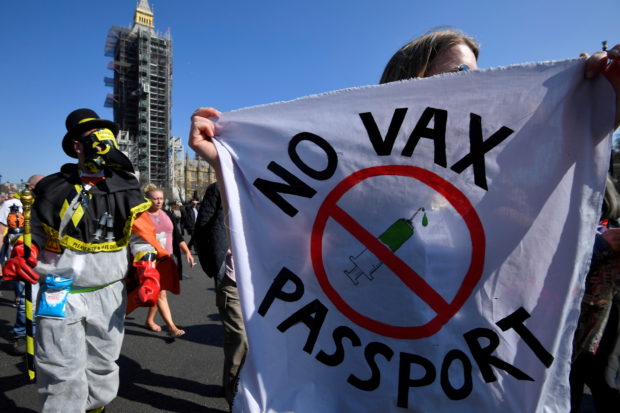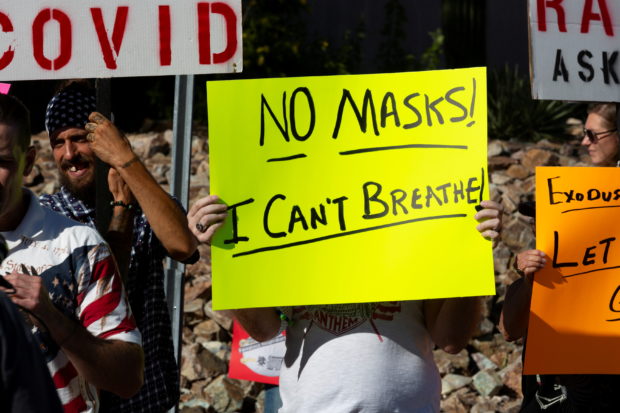Over half of people in democracies feel freedoms overly curbed in COVID crisis – survey

FILE PHOTO: Demonstrators take part in an anti-lockdown ‘Unite for Freedom’ protest, amid the spread of the coronavirus disease (COVID-19), in London, Britain, April 24, 2021. REUTERS/Toby Melville
BRUSSELS — Fifty-eight percent of people living in the world’s democracies are satisfied with the response of their government to the COVID-19 pandemic though over half believe their freedoms have been overly restricted, a survey published on Wednesday found.
The survey of over 50,000 people from 53 countries also found that a little more than half feel their nation is democratic but many view economic inequality and the power of big tech companies as threats to democracy.
Though the majority of respondents approve of how their governments had responded to the pandemic, 53 percent feel their personal freedoms have been excessively curbed by lockdowns, according to the survey.
“We now need to come out of the COVID-19 pandemic by delivering more democracy and freedom to people,” said Anders Fogh Rasmussen, Chair of the Alliance of Democracies Foundation, which along with AI-powered brand tracking firm Latana conducted the survey.
Some 64% of those questioned regarded economic inequality as the single biggest threat to democracy around the world. Respondents in the United States were most concerned with Big Tech companies’ impact on democracy.
Article continues after this advertisement
FILE PHOTO: Protestors demonstrate outside the home of Tucson’s Mayor Regina Romero in opposition to the new mask mandate to prevent the spread of the coronavirus disease (COVID-19) in Tucson, Arizona, U.S., June 20, 2020. REUTERS/Cheney Orr
Almost half of those surveyed globally worried about the United States threatening their democracy, while 38% feared Chinese influence and some 27% were wary of that of Russia.
Article continues after this advertisementWith the election of President Joe Biden, the perception of U.S. influence on democracy globally has improved from Donald Trump’s administration. However, in Europe, Russia, and China, U.S. influence is still mainly perceived as negative.
Overall, 62% of respondents thought social media had a positive impact on democracy in their country. The global figure included 76% in Venezuela and 72% in Hong Kong where social media were used to organize protests and then banned. The U.S. reading stood at only 41%.
Most of the 53 countries included in the survey were multi-party democracies, with others including China, Venezuela, Vietnam, and Saudi Arabia.
For more news about the novel coronavirus click here.
What you need to know about Coronavirus.
For more information on COVID-19, call the DOH Hotline: (02) 86517800 local 1149/1150.
The Inquirer Foundation supports our healthcare frontliners and is still accepting cash donations to be deposited at Banco de Oro (BDO) current account #007960018860 or donate through PayMaya using this link.